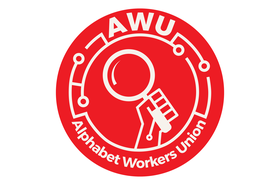Human rights groups says that Google should stop building data centers in Saudi Arabia, and cancel plans to open a cloud region in partnership with Saudi Aramco.
At the very least, the groups argue, Google should carry out a public human rights assessment and show what steps it would take to stop its platform from being misused.
Morality versus money
“Saudi Arabia has a dismal human rights record, including digital surveillance of dissidents, and is an unsafe country to host the Google Cloud Platform,” Rasha Abdul Rahim, director of Amnesty Tech, said.
“In a country where dissidents are arrested, jailed for their expression and tortured for their work – Google’s plan could give the Saudi authorities even greater powers to infiltrate networks and gain access to data on peaceful activists and any individual expressing a dissenting opinion in the Kingdom."
Amnesty International was joined by 38 other human rights organizations, including the Electronic Frontier Foundation, Oxford Internet Institute, Greenpeace, Human Rights Watch, Democracy for the Arab World Now, and ALQST for Human Rights.
The groups noted how Saudi Arabia has a well-documented record of illegally surveilling its own citizens, often through US technology companies.
Crown Prince Mohammed bin Salman has spearheaded a campaign of persecution against clerics, public figures, family members, human rights activists, women's rights figures, and academics.
In 2019, two Twitter employees were accused by the US DoJ of spying for the country. It is believed they joined the company to gain access to user data, revealing the identity of state critics who have since been arrested or disappeared.
Activists overseas were also targeted with spyware, as was Amnesty itself.
The human rights groups said that they had made multiple attempts to get Google to make a public commitment to protecting human rights by launching an open inquiry.
It responded that it had conducted an independent human rights assessment, and taken some steps. But it did not publish the assessment, nor did it say what steps it took.
"Google must immediately halt any plans to establish a Cloud region in Saudi Arabia until the company can publicly demonstrate how it will prevent potential abuse of its platform," Rahim said.
Google parent Alphabet first began negotiations for data centers in Saudi Arabia back in 2018, originally planning a huge joint venture with Aramco that would be listed on the stock exchange.
But just a few months after bin Salman met with Google's CEO and founders, the country murdered Washington Post columnist and US resident Jamal Khashoggi.
The deal was quietly paused, to be resurrected two years later as a cloud partnership.
Google said it would deploy and operate a cloud region in Saudi Arabia, while a local strategic reseller, sponsored by Aramco, would offer cloud services to customers. The news was announced in a December 21 blog post, when much of the tech media was winding down.
The post raised eyebrows at the time, as it also was used to highlight that Google operates the cleanest cloud in the industry.
When we wrote about the contradiction of claiming to operate a green cloud while partnering with the world's largest producer of oil - responsible for 4.5 percent of global industrial greenhouse gas emissions - Google representatives told us they disagreed with the coverage. They did not respond to detailed questions about the partnership.
Some Google employees have also called on the company to stop working with oil companies.




